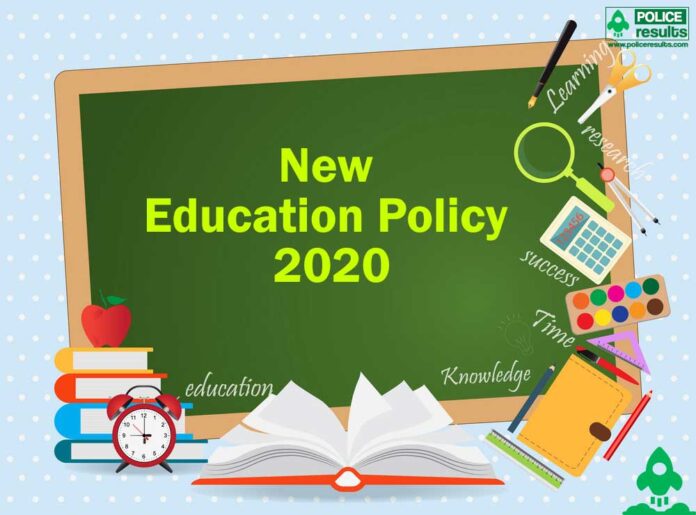India Tomorrow
NEW DELHI—Director of Chennai-based Loyola Institute of Business Administration (LIBA) Joe Arun has said that the National Education Policy (NEP) 2020 carries a lot of features that are in raging conflict with the federal scheme of things as envisaged by the Constitution of India.
He made the comment while presenting a paper titled “Light but Tight: A Critical Introduction to the National Education Policy 2020 of India” at the National Consultation of the Senior Leaders in higher education on the new NEP 2020 last week.
He said the NEP 2020 does not promise secular education which is a departure from the constitutional guarantees. “Any policy must possess a character of ease in implementation and fairness to all and favourable to the least and the marginalised. But this policy is obsessively preoccupied with measuring up to the expectations of the global standards alone, very specifically the educational requirements and qualifications for overseas education systems of countries such as the United States and Europe. In addition, it does not have a clear roadmap for effective implementation,” said Arun.
Meanwhile, Union Education Minister Ramesh Pokhriyal on Monday said that the NEP 2020 has been finalized and the Centre is taking multiple initiatives and actions for its implementation. “The NEP 2020 has been finalised after a detailed consultation process with all stakeholders, including state/UT governments,” he said in a written reply in the Lok Sabha, adding that the implementation of the policy requires multiple initiatives and actions, which will have to be taken by multiple bodies in a “synchronised and systematic manner”.
The ministry, Pokhriyal said, has communicated to all states/UT governments for implementation of the NEP 2020 in letter and spirit. It is also organising “Shikshak Parv” (festival of education) from September 8 to September 25, to “deliberate on various themes and implementation of NEP 2020 aimed at eliciting suggestions”.
Last week, addressing students at the School Education Conclave, Prime Minister Narendra Modi talked about the changes the NEP 2020 will bring. “The New education policy will sow the seeds for starting a new era, and will give new direction to 21st century India,” said Modi, adding that the focus needs to be on the implementation of the policy. “Our work has just begun; National Education Policy has to be implemented equally effectively,” he said.
Within the past one week, the Education Ministry has received over 15 lakh suggestions on its implementation, said the PM while addressing the conclave on ‘School Education in 21st Century’ organised by the Ministry of Education as a part of Shiksha Parv. The PM had earlier talked about the higher education part of the NEP during a conclave on ‘transformational reforms in higher education’.
At the conclave, Arun said that although the NEP 2020 seems to have potential factors for quality education, it stops well short of addressing the heart of the problem. “Education must be for the common good. Any policy aimed at universal quality education must also make education affordable, but the new policy has little to say on this aspect. The policy envisions education as ‘a key to India’s continued ascent and leadership on the global stage’, whereas the aim of education should be promotion of critical thinking and furthering of social and economic equality,” he said.
Highlighting some of the major concerns being raised by educationists in the country regarding the government’s hurry to pass the NEP in the middle of the pandemic, Arun said that the Centre wants to make use of the COVID-19 crisis to promulgate its own policies ‘without permitting any democratic resistance,’ as articulated by many. “Using the lockdown, the BJP-led government has disinvested in the public sectors such as Railways and Airports, allowed privatisation of the electricity sector and cleared very sensitive environment policy,” he said.
Elaborating on the provisions in the NEP 2020, he said that since the policy mentions that vocational training of students will begin from Class 6, it can have an adverse impact as it will push children into the labour market, and their education will be discontinued. “There is a lot of emphasis on digital education, which the RTE Forum fears will promote further segregation of children. India currently does not have adequate infrastructure to support this, and more than 70% children from marginalized backgrounds could be excluded, as evident from the COVID-19 pandemic, wherein many children are missing online classes due to the digital divide in the country,” he said.
The sharpest criticism against the NEP 2020, he said, has been that it would lead to the privatisation of higher education which is a denial of social justice. “The NEP aims to gradually phase out the system of affiliation to a university in 15 years and grant autonomy to colleges which will open the doors to privatisation. Judging government and private educational institutions using the same yardstick will pave way for the entry of corporates and private players into the education sector. The government is shying away from its own responsibility to provide quality higher education for all, instead of allowing foreign universities to enter the country which will definitely charge a high tuition fee and increase the caste and class based inequalities in education further,” he said.
(This story has been written by Nawaid Anjum).





